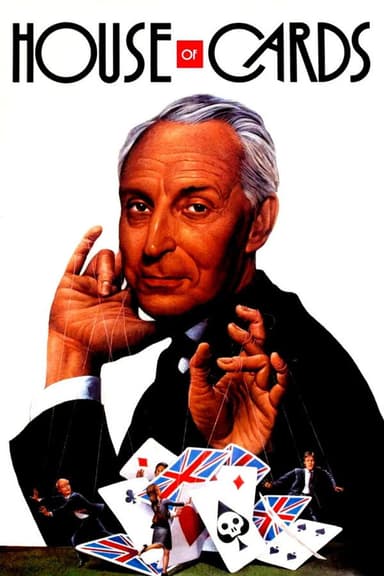
I'll Take Manhattan
1987 • Drama
I'll Take Manhattan is a 1987 American television miniseries, adapted from Judith Krantz's novel of the same name. Screened by CBS, it tells the story of the wealthy Amberville family, who run their own publishing company in New York. After Zachary Amberville, the patriarch of the family, dies, the company is taken over by his unscrupulous brother Cutter. Zachary's children, especially his energetic and intelligent daughter Maxi, begin a battle to regain control of the father's company.
I'll Take Manhattan was the highest-rated miniseries of the 1986–87 US television season with a 22.9/35 rating/share.
Why you should read the novel
Judith Krantz’s I’ll Take Manhattan is a dynamic and decadent portrait of ambition, power, and love in New York City. The novel transports you deep into the world of fashion, publishing, and high society, all told through the eyes of the spirited Maxi Amberville and her complex family. Fans of engrossing character journeys, emotional highs and lows, and rich period detail will find the pages impossible to put down.
Choosing the novel over the TV adaptation allows readers a more intimate understanding of characters’ inner lives and motivations. Krantz’s shimmering prose draws one into Maxi’s struggles and victories, weaving nuanced family drama alongside steamy romance, with all the sharp wit and insight that made her work a phenomenon. The book delivers layers of plot and psychological depth that a miniseries simply cannot match.
Reading I’ll Take Manhattan is also a chance to experience Krantz’s signature style: her attention to sensual detail, her bold female protagonists, and her sparkling dialogue. The book delves much deeper into the complexities of relationships, family legacies, and the particular pulse of Manhattan than its on-screen counterpart. For those who relish a truly immersive escape, the novel is the definitive experience.
Adaptation differences
The 1987 television miniseries condenses the plot of I’ll Take Manhattan, resulting in trimmed storylines and simplified character arcs. Many scenes are abridged or omitted altogether, especially those exploring characters’ internal struggles, hence viewers lose out on the nuanced emotional development found in the novel. Maxi’s evolution into a fierce businesswoman is sped through in the adaptation, making her transformation feel less organic than in the book.
Another significant difference lies in the depiction of supporting characters. The show omits or alters several side characters and their subplots to fit the runtime, which flattens some of the rich tapestry of relationships crafted by Krantz. The Amberville family’s deep-rooted dynamics, layer after layer, get more shallow on screen—often boiling down to quicker resolutions rather than the intricate clashes and reconciliations explored in the novel.
Certain plot developments are also modified or left out. In the source novel, the cutthroat business environment Maxi faces and her bold takeovers are described with elaborate detail, whereas the adaptation tends to summarize or gloss over these, focusing more on melodramatic highlights. The setting itself—1980s Manhattan—comes alive through Krantz’s writing, but on TV, it is reduced to a backdrop for sweeping drama and romance.
Finally, the tone of Krantz’s novel balances sensuality, ambition, and wit, all provided with depth and sometimes subversive humor. While the miniseries provides lavish period visuals, it struggles to capture the same intimate, sparkling voice that drives the book. As a result, the television adaptation may satisfy those after visual spectacle, but it invariably lacks the complexity, sharpness, and vibrant energy of Judith Krantz’s original work.
I'll Take Manhattan inspired from
I'll Take Manhattan
by Judith Krantz














